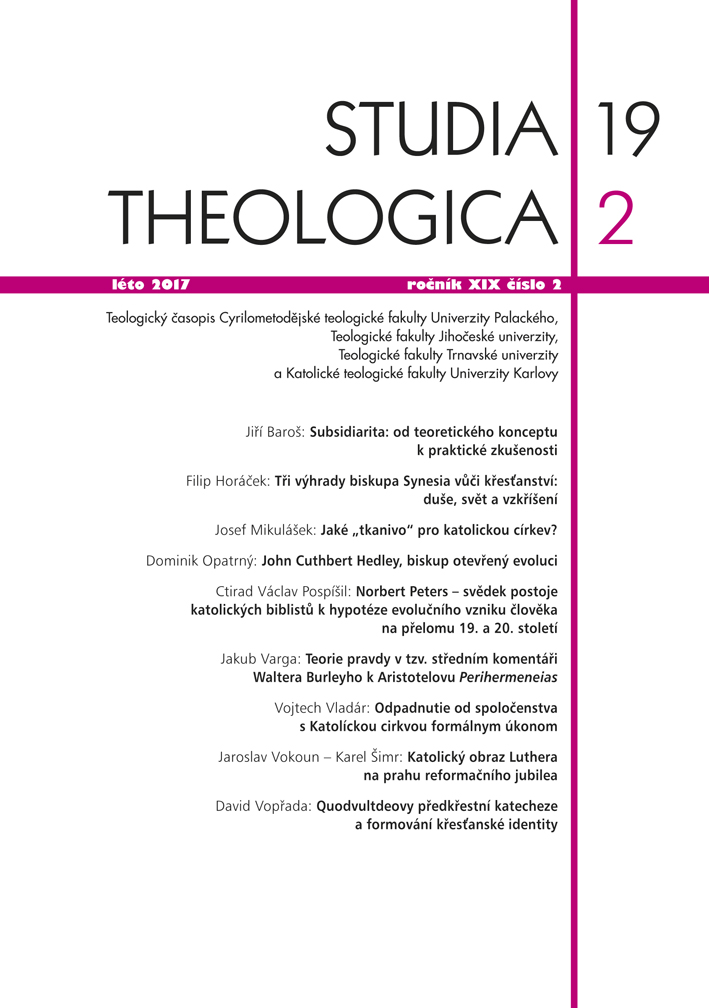Tři výhrady biskupa Synesia vůči křesťanství: duše, svět a vzkříšení
The Three Reservations of Bishop Synesius concerning Christian Teachings: The Soul, the World, and the Resurrection
Author(s): Filip HoráčekSubject(s): Theology and Religion
Published by: Univerzita Palackého v Olomouci
Keywords: Synesius of Cyrene; Epistle 105; Neoplatonism; the Pre existence of Souls; the Eternity of the World; the Resurrection of Christ; the Resurrection of the Body; Theophilus of Alexandria
Summary/Abstract: Synesius rejected the ideas of the generation of the soul after the body, of the corruptibility of the world, and of the resurrection understood too literally in 411 AD. The objections by the future bishop can be evaluated differently in each particular case. His reservations about certain impiously gross ideas concerning the resurrection (of Christ, or humanity?) were quite expectable by the Christian authors of the day and cannot therefore be viewed as a legitimate argument of Synesius against the faith of the Church. In contrast, the idea of the eternity of the world is part of non-Christian Platonism in the strictest sense. Yet another type of Cyrenaean’s disapproval of some of the (allegedly) ecclesiastical concepts is his rejection of the notion of bodies existing before their souls. It even seems that this strange issue could have been a mere strategy on Synesius’ part creating a false problem for Theophilus to ensure that his future bishop did not object to anything too serious. It was not actually an official article of faith, since the Church of the day still only held the relatively vague Nicene-Constantinopolitan Creed as dogma, which was only relevant extremely generally in relation to the themes of the resurrection and eternity. From a rhetorical point of view, Synesius as an experienced sophist created to his advantage an interface between the public and private in Ep. 105. He was able to avoid the possible danger caused by his objections thanks to the formally private status of the letter addressed to his brother. He consequently allows both Theophilus and the church in Libya to fully publicly know his actual philosophical positions.
Journal: Studia theologica
- Issue Year: XIX/2017
- Issue No: 2
- Page Range: 23-42
- Page Count: 20
- Language: Czech

